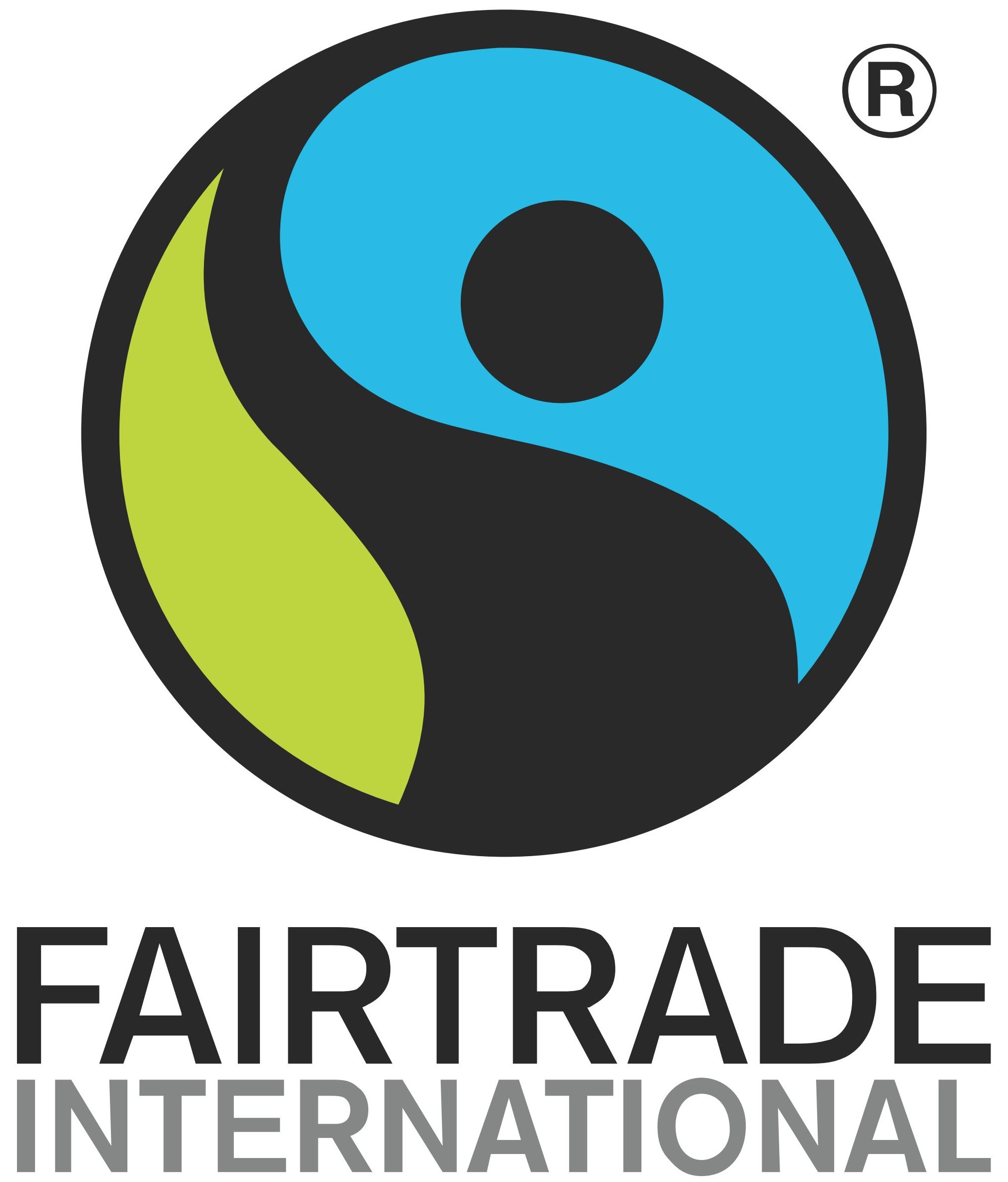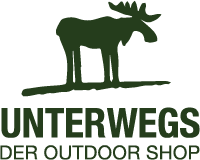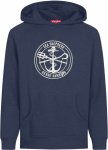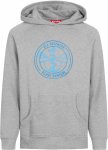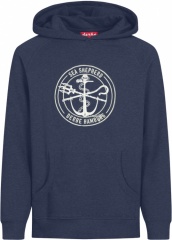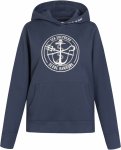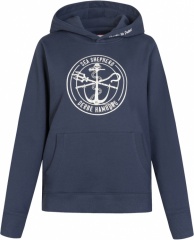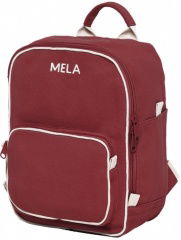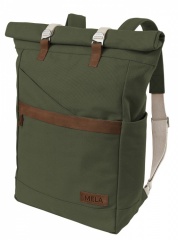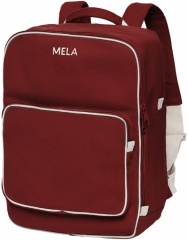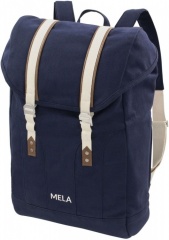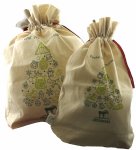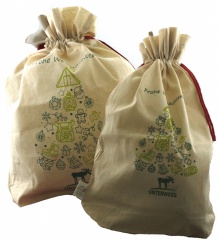Der Schutz Ihrer Privatsphäre bei der Nutzung unserer Webseite www.unterwegs.biz ist uns wichtig.
Damit Sie sich bei dem Besuch unserer Webseiten sicher fühlen, beachten wir bei der Verarbeitung Ihrer personenbezogenen Daten streng die gesetzlichen Bestimmungen und möchten Sie hier über unsere Datenerhebung und Datenverwendung informieren.
1. Verantwortliche Stelle
Verantwortliche Stelle für die Erhebung, Verarbeitung und Nutzung Ihrer personenbezogenen Daten im Sinne des Bundesdatenschutzgesetzes ist die Unterwegs Outdoor Shop GmbH, Flutstraße 84a, 26386 Wilhelmshaven.
Sofern Sie der Erhebung, Verarbeitung oder Nutzung Ihrer Daten durch Unterwegs nach Maßgabe dieser Datenschutzbestimmungen insgesamt oder für einzelne Maßnahmen widersprechen wollen, können Sie Ihren Widerspruch per E-Mail, Fax oder Brief an folgende Kontaktdaten senden:
Unterwegs Outdoor Shop GmbH
Datenschutz
Flutstraße 84a
26386 Wilhelmshaven
Telefon: 04421/500380
eMail: shop@unterwegs.biz
Datenschutzbeauftragter
Gesetzlich vorgeschriebener Datenschutzbeauftragter
Wir haben für unser Unternehmen einen Datenschutzbeauftragten bestellt
Tim Spiekermann
Schulstraße 24
26936 Stadland
Telefon: 04737/940800
eMail: info@computer-spiekermann.de
2. Erfassung allgemeiner Informationen
Sie können unsere Webseiten grundsätzlich besuchen, ohne dass wir personenbezogene Daten von Ihnen erheben. Wenn Sie auf unsere Webseite zugreifen, werden automatisch Informationen allgemeiner Natur erfasst. Diese Informationen (Server-Logfiles) beinhalten etwa die Art des Webbrowsers, das verwendete Betriebssystem, den Domainnamen Ihres Internet Service Providers und Ähnliches. Hierbei handelt es sich ausschließlich um Informationen, welche keine Rückschlüsse auf Ihre Person zulassen. Diese anonymen Informationen sind technisch notwendig, um von Ihnen angeforderte Inhalte von Webseiten korrekt auszuliefern und fallen bei Nutzung des Internets zwingend an. Anonyme Informationen dieser Art werden von uns statistisch ausgewertet, um unseren Internetauftritt und die dahinterstehende Technik zu optimieren.
3. Cookies
3.1 Allgemeines
Diese Website nutzt sogenannte "Cookies", welche dazu dienen, unsere Internetpräsenz insgesamt nutzerfreundlicher, effektiver sowie sicherer zu machen - etwa wenn es darum geht, das Navigieren auf unserer Website zu beschleunigen. Zudem versetzen uns Cookies in die Lage, die Häufigkeit von Seitenaufrufen und die allgemeine Navigation zu messen. Bei Cookies handelt es sich um kleine Textdateien, die auf Ihrem Computersystem abgelegt werden. Wir weisen Sie darauf hin, dass einige dieser Cookies von unserem Server auf Ihr Computersystem überspielt werden, wobei es sich dabei meist um sogenannte "Session-Cookies " handelt. "Session-Cookies" zeichnen sich dadurch aus, dass diese automatisch nach Ende der Browser-Sitzung wieder von Ihrer Festplatte gelöscht werden.
Andere Cookies verbleiben auf Ihrem Computersystem und ermöglichen es uns, Ihr Computersystem bei Ihrem nächsten Besuch wiederzuerkennen (sog. dauerhafte Cookies).
In den verwendeten Cookies werden keine personenbezogenen Daten gespeichert. Auf Basis der Cookies erhalten wir lediglich anonymisierte Informationen. Selbstverständlich können Sie Cookies jederzeit ablehnen, sofern Ihr Browser dies zulässt. Bitte beachten Sie, dass bestimmte Funktionen dieser Website möglicherweise nicht oder nur eingeschränkt genutzt werden können, wenn Ihr Browser so eingestellt ist, dass keine Cookies (unserer Website) angenommen werden.
Rechtsgrundlage für die Verwendung von Cookies sind unsere berechtigten Interessen (Art. 6 (1) lit. f DSGVO).
3.2 Separate Deaktivierung von Analyse-, Targeting- und Werbe-Cookies
Sie haben die Möglichkeit, der Verwendung von Cookies zu widersprechen. Durch eine Deaktivierung der aufgeführten Cookies wird die Funktionalität dieser Shop-Seite nicht beeinträchtigt.
3.3 Einsatz von Google Remarketing
Diese Webseite verwendet die Remarketing-Funktion der Google Inc. Die Funktion dient dazu, Webseitenbesuchern innerhalb des Google-Werbenetzwerks interessenbezogene Werbeanzeigen zu präsentieren. Im Browser des Webseitenbesuchers wird ein sog. „Cookie“ gespeichert, der es ermöglicht, den Besucher wiederzuerkennen, wenn dieser Webseiten aufruft, die dem Werbenetzwerk von Google angehören. Auf diesen Seiten können dem Besucher Werbeanzeigen präsentiert werden, die sich auf Inhalte beziehen, die der Besucher zuvor auf Webseiten aufgerufen hat, die die Remarketing Funktion von Google verwenden. Nach eigenen Angaben erhebt Google bei diesem Vorgang keine personenbezogenen Daten. Sollten Sie die Funktion Remarketing von Google dennoch nicht wünschen, können Sie diese grundsätzlich deaktivieren, indem Sie die entsprechenden Einstellungen unter http://www.google.com/settings/ads vornehmen. Alternativ können Sie den Einsatz von Cookies für interessenbezogene Werbung über die Werbenetzwerkinitiative deaktivieren, indem Sie den Anweisungen unter http://www.google.com/settings/ads folgen.
3.4 Einsatz von Facebook-Werbung
Wir setzen Facebook Website Custom Audiences, Lookalike Audiences und den Conversion Pixel der Meta Platforms Ireland Limited, 4 Grand Canal Square, Dublin 2, Irland ein (im Folgenden “Facebook” genannt). Hierbei handelt es sich um einen Marketingdienst von Facebook. Dieser ermöglicht es uns, bestimmten Gruppen von pseudonymisierten Besuchern unserer Website, die auch Facebook nutzen, individuell abgestimmte und interessenbezogene Werbung auf Facebook anzeigen zu lassen.
Auf unserer Website ist ein Facebook Pixel-Tag integriert. Hierbei handelt es sich um einen Java Script-Code, über den nicht-personenbezogene Daten über die Nutzung der Website gespeichert werden. Dazu gehören Ihre IP-Adresse, der genutzte Browser sowie Ausgangs- und Zielseite. Diese Informationen werden an Server von Facebook in den USA übertragen.
Die Übermittlung dieser Informationen in die USA erfolgt auf Grundlage der Standarddatenschutzklauseln der Europäischen Kommission nach Art. 46 Abs. 2c) DSGVO. Facebook hat darüber hinaus umfangreiche technische und organisatorische Maßnahmen implementiert, die darauf ausgelegt sind, personenbezogenen Daten vor versehentlicher oder unrechtmäßiger Vernichtung oder versehentlichem Verlust, Beschädigung, Änderung, unbefugter Offenlegung oder Zugriff zu schützen.
Dort wird automatisiert abgeglichen, ob Sie einen Facebook-Cookie gespeichert haben. Über den Facebook-Cookie wird automatisch ermittelt, ob Sie zu der für uns relevanten Zielgruppe gehören. Gehören Sie zu der Zielgruppe, werden Ihnen bei Facebook Anzeigen von uns angezeigt. Bei diesem Vorgang werden Sie durch den Abgleich der Daten weder durch uns noch durch Facebook persönlich identifiziert.
Sie können der Verwendung des Pixels auf der Website von Facebook widersprechen. Nach Anmeldung zu Ihrem Facebook-Konto gelangen Sie zu den Einstellungen für Facebook-Werbeanzeigen.
Nähere Informationen zur Funktionsweise des Facebook Pixels finden Sie unter: https://www.facebook.com/about/privacy
Zum Widerruf rufen Sie bitte diese Seite auf: https://www.facebook.com/settings/?tab=ads# und deaktivieren die personalisierte Werbung.
Sie können Ihre einmal erteilte Einwilligung jederzeit gegenüber uns widerrufen. Dies hat zur Folge, dass wir die oben beschriebene Datenverarbeitung, die auf dieser Einwilligung beruht, in Zukunft nicht mehr fortführen dürfen.
4. Personenbezogene Daten
4.1 Allgemeines
Personenbezogene Daten wie Name, Anschrift, Kontakt- und Kommunikationsdaten wie Telefonnummer und E-Mail-Adresse werden nur erhoben, wenn Sie uns diese von sich aus zur Durchführung eines Vertrages, bei der Eröffnung eines Kundenkontos oder im Rahmen der Kontaktaufnahme mitteilen. Wir erheben nur die Daten, die zur Erledigung Ihres Auftrags erforderlich sind. Diese Daten werden ohne Ihre ausdrückliche Einwilligung jeweils allein zur Vertragsabwicklung und Bearbeitung Ihrer Anfragen von uns genutzt.
Ihre Telefonnummer benötigen wir für evtl. Nachfragen, bei Rücksendungen, Umtausch oder Lieferverzug. Keinesfalls erhalten Sie von uns Anrufe oder SMS zu Werbezwecken.
Ihre persönlichen Daten werden nach modernsten technischen Verfahren vor Diebstahl und Missbrauch geschützt. Im Falle der Angabe persönlicher Daten werden diese verschlüsselt übertragen (SSL).
Nach vollständiger Abwicklung des Vertrages und vollständiger Kaufpreisbezahlung werden Ihre Daten mit Rücksicht auf steuer- und handelsrechtliche Aufbewahrungsfristen gespeichert.
Keinesfalls geben wir Ihre Daten zu Werbezwecken weiter.
Ihre Kreditkartendaten werden in Ihrem Interesse aus Sicherheitsgründen NICHT von uns gespeichert. Daher müssen Sie die Kreditkartendaten bei jedem Kauf neu erfassen.
4.2 Kontaktformular
Treten Sie per E-Mail oder Kontaktformular mit uns in Kontakt, werden die von Ihnen gemachten Angaben zum Zwecke der Bearbeitung der Anfrage sowie für mögliche Anschlussfragen gespeichert.
4.3 Datenlöschung
Selbstverständlich erteilen wir Ihnen jederzeit Auskunft über die von uns über Sie gespeicherten personenbezogenen Daten. Gerne berichtigen bzw. löschen wir diese auch auf Ihren Wunsch, soweit keine gesetzlichen Aufbewahrungspflichten entgegenstehen. Zur Kontaktaufnahme in diesem Zusammenhang nutzen Sie bitte die zu dieser Datenschutzerklärung angegebenen Kontaktdaten.
4.4 Weitergabe personenbezogener Daten
4.4.1 Bestellabwicklung
Die personenbezogenen Daten werden im Rahmen der Vertragsabwicklung an das mit der Lieferung beauftragte Transportunternehmen weitergegeben, soweit dies zur Lieferung der Ware erforderlich ist. Zum Zweck der Sendungsavise und Sendungsverfolgung geben wir die E-Mail Adresse zusammen mit den Adressdaten an die Versanddienstleister DHL oder UPS weiter.
Wir geben Ihre Zahlungsdaten im Rahmen der Abwicklung von Zahlungen an das beauftragte Kreditinstitut weiter. Ihre Kreditkartendaten werden in Ihrem Interesse aus Sicherheitsgründen NICHT von uns gespeichert. Daher müssen Sie die Kreditkartendaten bei jedem Kauf neu erfassen. Bei uns bezahlen Sie sicher und einfach via Saferpay, ein PCI DSS-zertifiziertes Produkt. Saferpay unterstu?tzt alle gängigen Sicherheitsstandards, die E-Payment-Lösung ist nach dem Payment Card Industry Standard - kurz PCI DSS - zertifiziert und fu?r das 3-D Secure-Verfahren der Kreditkartenorganisationen Visa und MasterCard («Verified by Visa» und «MasterCard Secure Code») international zugelassen.
4.4.2 Bonitätsprüfung und Adressverifizierung
Sollten wir in Vorleistung treten (z. B. Lieferung auf Rechnung), behalten wir uns vor, eine Bonitätsprüfung auf der Grundlage mathematisch-statistischer Verfahren durchzuführen, um unsere berechtigten Interessen zu wahren.
Wir übermitteln Ihre Daten (Name, Adresse und ggf. Geburtsdatum) zum Zweck der Bonitätsprüfung, dem Bezug von Informationen zur Beurteilung des Zahlungsausfallsrisikos auf Basis mathematisch-statistischer Verfahren unter Verwendung von Anschriftendaten sowie zur Verifizierung Ihrer Adresse (Prüfung auf Zustellbarkeit) an die
infoscore Consumer Data GmbH, Rheinstraße 99, 76532 Baden-Baden
Rechtsgrundlagen dieser Übermittlungen sind Artikel 6 Absatz 1 Buchstabe b und Artikel 6 Absatz 1 Buchstabe f der DSGVO. Übermittlungen auf der Grundlage dieser Bestimmungen dürfen nur erfolgen, soweit dies zur Wahrnehmung berechtigter Interessen unseres Unternehmens oder Dritter erforderlich ist und nicht die Interessen der Grundrechte und Grundfreiheiten der betroffenen Person, die den Schutz personenbezogener Daten erfordern, überweigen. Detaillierte Informationen zu Art. 14 Europäische Datenschutzverordnung ("DSGVO"), d. h. Informationen zum Geschäftszweck, zu Zwecken der Datenspeicherung, zu den Datenempfängern, zum Selbtsauskunftsrecht, zum Anspruch auf Löschung oder Berechtigung finden Sie unter folgendem Link.
Wir übermitteln im Rahmen dieses Vertragsverhältnisses erhobene Daten über die Beantragung, die Durchführung und Beendigung dieser Geschäftsbeziehung sowie Daten über nicht vertragsgemäßes Verhalten oder betrügerisches Verhalten an die
CRIF GmbH, Leopoldstraße 244, 80807 München
Rechtsgrundlage dieser Übermittlungen sind Artikel 6 Absatz 1 Buchstabe b und Artikel 6 Absatz 1 Buchstabe f der Datenschutz-Grundverordnung (DSGVO). Übermittlungen auf der Grundlage von Artikel 6 Absatz 1 Buchstabe f DSGVO dürfen nur erfolgen, soweit dies zur Wahrung berechtigter Interessen unseres Unternehmens oder Dritter erforderlich ist und nicht die Interessen oder Grundrechte und Grundfreiheiten der betroffenen Person, die den Schutz personenbezogener Daten erfordern, überwiegen. Der Datenaustausch mit der CRIF GmbH dient auch der Erfüllung gesetzlicher Pflichten zur Durchführung von Kreditwürdigkeitsprüfungen von Kunden (§ 505a und 506 des Bürgelichen Gesetzbuches).
Die CRIF GmbH verarbeitet die erhaltenen Daten und verwendet sie auch zum Zwecke der Profilbildung (Scoring), um ihren Vertragspartnern im Europäischen Wirtschaftsraum und in der Schweiz sowie ggf. weiteren Drittländern (sofern zu diesen ein Angemessenheitsbeschluss der Euopäischen Kommission besteht) Informationen unter anderem zur Beurteilung der Kreditwürdigkeit von natürlichen Personen zu geben. Nähere Informationen zur Tätigkeit der CRIF GmbH können online unter folgendem Link eingesehen werden: CRIF Homepage.
Für Kunden aus Österreich fragen wir diese Daten ab bei der:
Experian Austria GmbH, Gumpendorfer Straße 19-21/1/6.OG, 1060 Wien
5. Produktbewertungen
Wenn Nutzer Produkte bewerten, werden neben dem Datum der Erstellung auch Vorname und der erste Buchstabe des Nachnamens gespeichert und öffentlich auf der Homepage sichtbar gemacht. Der Veröffentlichung dieser Bewertung kann der Nutzer jederzeit widersprechen.
6. Newsletter
Bei der Anmeldung zum Unterwegs "Elchpost" Newsletter werden die von Ihnen angegebenen Daten ausschließlich für diesen Zweck verwendet. Abonnenten können auch über Umstände per E-Mail informiert werden, die für den Dienst oder die Registrierung relevant sind (Beispielsweise Änderungen des Newsletterangebots oder technische Gegebenheiten).
Für eine wirksame Registrierung benötigen wir eine valide E-Mail-Adresse. Um zu überprüfen, dass eine Anmeldung tatsächlich durch den Inhaber einer E-Mail-Adresse erfolgt, setzen wir das „Double-opt-in“-Verfahren ein. Hierzu protokollieren wir die Bestellung des Newsletters, den Versand einer Bestätigungsmail und den Eingang der hiermit angeforderten Antwort. Weitere Daten werden nicht erhoben. Die Daten werden ausschließlich für den Newsletterversand verwendet und nicht an Dritte weitergegeben.
Die Einwilligung zur Speicherung Ihrer persönlichen Daten und ihrer Nutzung für den Newsletterversand können Sie jederzeit widerrufen. In jedem Newsletter findet sich dazu ein entsprechender Link. Außerdem können Sie sich jederzeit auch direkt auf dieser Webseite abmelden oder uns Ihren entsprechenden Wunsch über die am Anfang dieser Datenschutzhinweise angegebene Kontaktmöglichkeit mitteilen.
Wir versenden unseren Newsletter mit Inxmail.
7. Einsatz von Web-Analyse-Software
7.1 Verwendung von Matomo
Auf dieser Website werden unter Einsatz der Open-Source-Software Matomo (www.matomo.org) anonyme Daten zu Optimierungszwecken gesammelt und gespeichert. Aus diesen Daten werden unter einem Pseudonym Nutzungsprofile erstellt, hierzu werden Cookies eingesetzt. Bei Cookies handelt es sich um kleine Textdateien, die lokal im Zwischenspeicher des Internetbrowsers des Seitenbesuchers gespeichert werden. Die Cookies ermöglichen die Wiedererkennung des Internetbrowsers. Die mit der Matomo-Technologie erhobenen Daten (einschließlich Ihrer anonymisierten IP-Adresse) werden an unseren Server übertragen und zu Nutzungsanalysezwecken gespeichert, was der Webseitenoptimierung unsererseits dient. Die durch den Cookie erzeugten Informationen im pseudonymen Nutzerprofil werden nicht dazu benutzt, den Besucher dieser Website persönlich zu identifizieren und nicht mit personenbezogenen Daten über den Träger des Pseudonyms zusammengeführt. Sie können die Verwendung der Cookies und damit die Teilnahme am Tracking durch eine entsprechende Einstellung Ihrer Browsersoftware verhindern, es kann jedoch sein, dass Sie in diesem Fall gegebenenfalls nicht sämtliche Funktionen dieser Website voll umfänglich nutzen können.
7.2 Verwendung von Google Analytics
Diese Website benutzt außerdem Google Analytics, einen Webanalysedienst der Google Inc. („Google“). Google Analytics verwendet sog. „Cookies“, Textdateien, die auf Ihrem Computer gespeichert werden und die eine Analyse der Benutzung der Website durch Sie ermöglichen. Die durch den Cookie erzeugten Informationen über Ihre Benutzung dieser Website werden in der Regel an einen Server von Google in den USA übertragen und dort gespeichert.
Im Falle der Aktivierung der IP-Anonymisierung auf dieser Webseite, wird Ihre IP-Adresse von Google jedoch innerhalb von Mitgliedstaaten der Europäischen Union oder in anderen Vertragsstaaten des Abkommens über den Europäischen Wirtschaftsraum zuvor gekürzt. Nur in Ausnahmefällen wird die volle IP-Adresse an einen Server von Google in den USA übertragen und dort gekürzt. Die IP-Anonymisierung ist auf dieser Website aktiv. Im Auftrag des Betreibers dieser Website wird Google diese Informationen benutzen, um Ihre Nutzung der Website auszuwerten, um Reports über die Websiteaktivitäten zusammenzustellen und um weitere mit der Websitenutzung und der Internetnutzung verbundene Dienstleistungen gegenüber dem Websitebetreiber zu erbringen.
Die im Rahmen von Google Analytics von Ihrem Browser übermittelte IP-Adresse wird nicht mit anderen Daten von Google zusammengeführt. Sie können die Speicherung der Cookies durch eine entsprechende Einstellung Ihrer Browser-Software verhindern; wir weisen Sie jedoch darauf hin, dass Sie in diesem Fall gegebenenfalls nicht sämtliche Funktionen dieser Website vollumfänglich werden nutzen können. Sie können darüber hinaus die Erfassung der durch das Cookie erzeugten und auf Ihre Nutzung der Website bezogenen Daten (inkl. Ihrer IP-Adresse) an Google sowie die Verarbeitung dieser Daten durch Google verhindern, indem sie das unter dem folgenden Link verfügbare Browser-Plugin herunterladen und installieren: Browser Add-on zur Deaktivierung von Google Analytics
Google Analytics im Einwilligungsmodus: Im Zustimmungsmodus werden personenbezogene Daten der Nutzer von Google zu Mess- und Werbezwecken verarbeitet, je nach Einwilligung der Nutzer. Die Einwilligung wird von den Nutzern im Rahmen unserer Online-Dienste eingeholt. Fehlt die Einwilligung der Nutzer gänzlich, so werden die Daten nur auf aggregierter (d.h. nicht einzelnen Nutzern zugeordneter und zusammengefasster) Ebene verarbeitet. Umfasst die Einwilligung nur die statistische Messung, werden keine personenbezogenen Daten der Nutzer für die Anzeigenschaltung oder die Messung des Werbeerfolgs (sog. "Konversion") verarbeitet; Website: https://support.google.com/analytics/answer/9976101?hl=de.
7.3 Facebook
Unser Internetauftritt verwendet Social Plug-Ins des sozialen Netzwerkes facebook.com, welches von Facebook betrieben wird. Die Plug-Ins sind mit einem Facebook Logo oder dem Zusatz "Facebook Social Plug-In" gekennzeichnet.
Wenn Sie eine Webseite unseres Internetauftritts aufrufen, die ein solches Plug-In enthält, baut Ihr Browser eine direkte Verbindung mit den Servern von Facebook auf. Der Inhalt des Plug-Ins wird von Facebook direkt an Ihren Browser übermittelt und von diesem in die Webseite eingebunden.
Durch die Einbindung der Plug-Ins erhält Facebook die Information, dass Sie die entsprechende Seite unseres Internetauftritts aufgerufen haben. Sind Sie bei Facebook eingeloggt, kann Facebook den Besuch Ihrem Facebook-Konto zuordnen. Wenn Sie zum Beispiel den "Gefällt mir" Button betätigen oder einen Kommentar abgeben, wird die entsprechende Information von Ihrem Browser direkt an Facebook übermittelt und dort gespeichert.
Zweck und Umfang der Datenerhebung und die weitere Verarbeitung und Nutzung der Daten durch Facebook sowie Ihre diesbezüglichen Rechte und Einstellungsmöglichkeiten zum Schutz Ihrer Privatsphäre entnehmen Sie bitte den Datenschutzhinweisen von Facebook.
Wenn Sie nicht möchten, dass Facebook über unseren Internetauftritt Daten über Sie sammelt, müssen Sie sich vor Ihrem Besuch unseres Internetauftritts bei Facebook ausloggen.
Auch wenn Sie nicht bei Facebook angemeldet sind, werden von Websites mit aktiven Facebook-Elementen Daten an Facebook gesendet. Facebook setzt bei jedem Aufruf des Internetauftritts ein Cookie mit einer Kennung, der zwei Jahre gültig ist. Da Ihr Browser dieses Cookie bei jeder Verbindung mit einem Facebook-Server ungefragt mitschickt, könnte Facebook damit prinzipiell ein Profil erstellen, welche Web-Seiten der zu der Kennung gehörende Anwender aufgerufen hat. Und es wäre dann auch durchaus möglich, diese Kennung später - etwa beim späteren Anmelden bei Facebook - auch wieder einer Person zuzuordnen.
Wenn Sie nicht möchten, dass Facebook über diese Cookies Daten über Sie sammelt, können Sie in Ihren Browser-Einstellungen die Funktion "Cookies von Drittanbietern blockieren" wählen. Dann sendet der Browser bei eingebetteten Inhalten anderer Anbieter keine Cookies an den Server. Mit dieser Einstellung funktionieren allerdings außer dem Like-Button unter Umständen auch andere seitenübergreifende Funktionen nicht mehr.
7.4 Eingebettete YouTube-Videos
Auf einigen unserer Webseiten betten wir Youtube-Videos ein. Betreiber der entsprechenden Plugins ist die YouTube, LLC, 901 Cherry Ave., San Bruno, CA 94066, USA. Wenn Sie eine Seite mit dem YouTube-Plugin besuchen, wird eine Verbindung zu Servern von Youtube hergestellt. Dabei wird Youtube mitgeteilt, welche Seiten Sie besuchen. Wenn Sie in Ihrem Youtube-Account eingeloggt sind, kann Youtube Ihr Surfverhalten Ihnen persönlich zuzuordnen. Dies verhindern Sie, indem Sie sich vorher aus Ihrem Youtube-Account ausloggen.
Wird ein Youtube-Video gestartet, setzt der Anbieter Cookies ein, die Hinweise über das Nutzerverhalten sammeln.
Wer das Speichern von Cookies für das Google-Ad-Programm deaktiviert hat, wird auch beim Anschauen von Youtube-Videos mit keinen solchen Cookies rechnen müssen. Youtube legt aber auch in anderen Cookies nicht-personenbezogene Nutzungsinformationen ab. Möchten Sie dies verhindern, so müssen Sie das Speichern von Cookies im Browser blockieren.
Weitere Informationen zum Datenschutz bei „Youtube“ finden Sie in der Datenschutzerklärung des Anbieters unter: https://www.google.de/intl/de/policies/privacy/
7.5 Eingebettete Vimeo-Videos
Auf einigen unserer Seiten sind Plugins des Videoportals Vimeo der Vimeo, LLC, 555 West 18th Street, New York, New York 10011, USA eingebunden. Wenn Sie eine Seite unseres Webauftritts aufrufen, die ein solches Plugin enthält, stellt Ihr Browser eine direkte Verbindung zu den Servern von Vimeo her. Der Inhalt des Plugins wird von Vimeo direkt an Ihren Browser übermittelt und in die Seite eingebunden. Durch diese Einbindung erhält Vimeo die Information, dass Ihr Browser die entsprechende Seite unseres Webauftritts aufgerufen hat, auch wenn Sie keinen Vimeo-Account besitzen oder gerade nicht bei Vimeo eingeloggt sind. Diese Information (einschließlich Ihrer IP-Adresse) wird von Ihrem Browser direkt an einen Server von Vimeo in die USA übermittelt und dort gespeichert.
Sind Sie bei Vimeo eingeloggt, kann Vimeo den Besuch unserer Website Ihrem Vimeo-Account unmittelbar zuordnen. Wenn Sie mit den Plugins interagieren (wie z.B. Betätigung des Start-Buttons eines Videos), wird diese Information ebenfalls direkt an einen Server von Vimeo übermittelt und dort gespeichert.
Die beschriebenen Datenverarbeitungsvorgänge erfolgen gemäß Art. 6 Abs. 1 lit. f DSGVO auf Basis des berechtigten Interesses von Vimeo an Marktforschung und der bedarfsgerechten Gestaltung des Dienstes.
Wenn Sie nicht möchten, dass Vimeo die über unseren Webauftritt gesammelten Daten unmittelbar Ihrem Vimeo-Account zuordnet, müssen Sie sich vor Ihrem Besuch unserer Website bei Vimeo ausloggen.
Zweck und Umfang der Datenerhebung und die weitere Verarbeitung und Nutzung der Daten durch Vimeo sowie Ihre diesbezüglichen Rechte und Einstellungsmöglichkeiten zum Schutz Ihrer Privatsphäre entnehmen Sie bitte den Datenschutzhinweisen von Vimeo:
Weitere Informationen zum Datenschutz bei „Vimeo“ finden Sie in der Datenschutzerklärung des Anbieters unter: https://vimeo.com/privacy
Vimeo handelt nach den Privacy Shield Prinzipien. Mehr dazu finden Sie hier: https://vimeo.com/transfer_statement
7.6 Hotjar
Diese Website nutzt Hotjar. Anbieter ist die Hotjar Ltd., Level 2, St Julians Business Centre, 3, Elia Zammit Street, St Julians STJ 1000, Malta, Europe (Website: https://www.hotjar.com).
Hotjar ist ein Werkzeug zur Analyse Ihres Nutzerverhaltens auf dieser Website. Mit Hotjar können wir u. a. Ihre Maus- und Scrollbewegungen und Klicks aufzeichnen. Hotjar kann dabei auch feststellen, wie lange Sie mit dem Mauszeiger auf einer bestimmten Stelle verblieben sind. Aus diesen Informationen erstellt Hotjar sogenannte Heatmaps, mit denen sich feststellen lässt, welche Websitebereiche vom Websitebesucher bevorzugt angeschaut werden. Des Weiteren können wir feststellen, wie lange Sie auf einer Seite verblieben sind und wann Sie sie verlassen haben. Wir können auch feststellen, an welcher Stelle Sie Ihre Eingaben in ein Kontaktformular abgebrochen haben. Diese Funktion dient der Verbesserung der Webangebote des Websitebetreibers.
Hotjar verwendet Technologien, die die Wiedererkennung des Nutzers zum Zwecke der Analyse des Nutzerverhaltens ermöglichen (z.B. Cookies oder Einsatz von Device-Fingerprinting). Die Nutzung dieses Analysetools erfolgt auf Grundlage von Art. 6 Abs. 1 lit. f DSGVO. Der Websitebetreiber hat ein berechtigtes Interesse an der Analyse des Nutzerverhaltens, um sowohl sein Webangebot als auch seine Werbung zu optimieren. Sofern eine entsprechende Einwilligung abgefragt wurde (z. B. eine Einwilligung zur Speicherung von Cookies), erfolgt die Verarbeitung ausschließlich auf Grundlage von Art. 6 Abs. 1 lit. a DSGVO; die Einwilligung ist jederzeit widerrufbar.
Wenn Sie die Datenerfassung durch Hotjar deaktivieren möchten, nutzen Sie den folgenden Link: https://www.hotjar.com/opt-out Bitte beachten Sie, dass die Deaktivierung von Hotjar für jeden Browser bzw. für jedes Endgerät separat erfolgen muss. Nähere Informationen über Hotjar und zu den erfassten Daten entnehmen Sie der Datenschutzerklärung von Hotjar unter: https://www.hotjar.com/privacy
8. Google AdWords
Unsere Webseite nutzt das Google Conversion-Tracking. Sind Sie über eine von Google geschaltete Anzeige auf unsere Webseite gelangt, wird von Google Adwords ein Cookie auf Ihrem Rechner gesetzt. Das Cookie für Conversion-Tracking wird gesetzt, wenn ein Nutzer auf eine von Google geschaltete Anzeige klickt. Diese Cookies verlieren nach 30 Tagen ihre Gültigkeit und dienen nicht der persönlichen Identifizierung. Besucht der Nutzer bestimmte Seiten unserer Website und das Cookie ist noch nicht abgelaufen, können wir und Google erkennen, dass der Nutzer auf die Anzeige geklickt hat und zu dieser Seite weitergeleitet wurde. Jeder Google AdWords-Kunde erhält ein anderes Cookie. Cookies können somit nicht über die Websites von AdWords-Kunden nachverfolgt werden. Die mithilfe des Conversion-Cookies eingeholten Informationen dienen dazu, Conversion-Statistiken für AdWords-Kunden zu erstellen, die sich für Conversion-Tracking entschieden haben. Die Kunden erfahren die Gesamtanzahl der Nutzer, die auf ihre Anzeige geklickt haben und zu einer mit einem Conversion-Tracking-Tag versehenen Seite weitergeleitet wurden. Sie erhalten jedoch keine Informationen, mit denen sich Nutzer persönlich identifizieren lassen.
Möchten Sie nicht am Tracking teilnehmen, können Sie das hierfür erforderliche Setzen eines Cookies ablehnen – etwa per Browser-Einstellung, die das automatische Setzen von Cookies generell deaktiviert oder Ihren Browser so einstellen, dass Cookies von der Domain „googleleadservices.com“ blockiert werden.
Bitte beachten Sie, dass Sie die Opt-out-Cookies nicht löschen dürfen, solange Sie keine Aufzeichnung von Messdaten wünschen. Haben Sie alle Ihre Cookies im Browser gelöscht, müssen Sie das jeweilige Opt-out Cookie erneut setzen.
9. Ihre Rechte auf Auskunft, Berichtigung, Sperre, Löschung und Widerspruch
Sie haben das Recht, jederzeit Auskunft über Ihre bei uns gespeicherten personenbezogenen Daten zu erhalten. Ebenso haben Sie das Recht auf Berichtigung, Sperrung oder, abgesehen von der vorgeschriebenen Datenspeicherung zur Geschäftsabwicklung, Löschung Ihrer personenbezogenen Daten. Bitte wenden Sie sich in diesem Fall an unseren Kundenservice.
Damit eine Sperre von Daten jederzeit berücksichtigt werden kann, müssen diese Daten zu Kontrollzwecken in einer Sperrdatei vorgehalten werden. Sie können auch die Löschung der Daten verlangen, soweit keine gesetzliche Archivierungsverpflichtung besteht. Soweit eine solche Verpflichtung besteht, sperren wir Ihre Daten auf Wunsch.
Sie können Änderungen oder den Widerruf einer Einwilligung durch entsprechende Mitteilung an uns mit Wirkung für die Zukunft vornehmen.
10. Änderung unserer Datenschutzbestimmungen
Wir behalten uns vor, diese Datenschutzerklärung gelegentlich anzupassen, damit sie stets den aktuellen rechtlichen Anforderungen entspricht oder um Änderungen unserer Leistungen in der Datenschutzerklärung umzusetzen, z. B. bei der Einführung neuer Services. Für Ihren erneuten Besuch gilt dann die neue Datenschutzerklärung.
